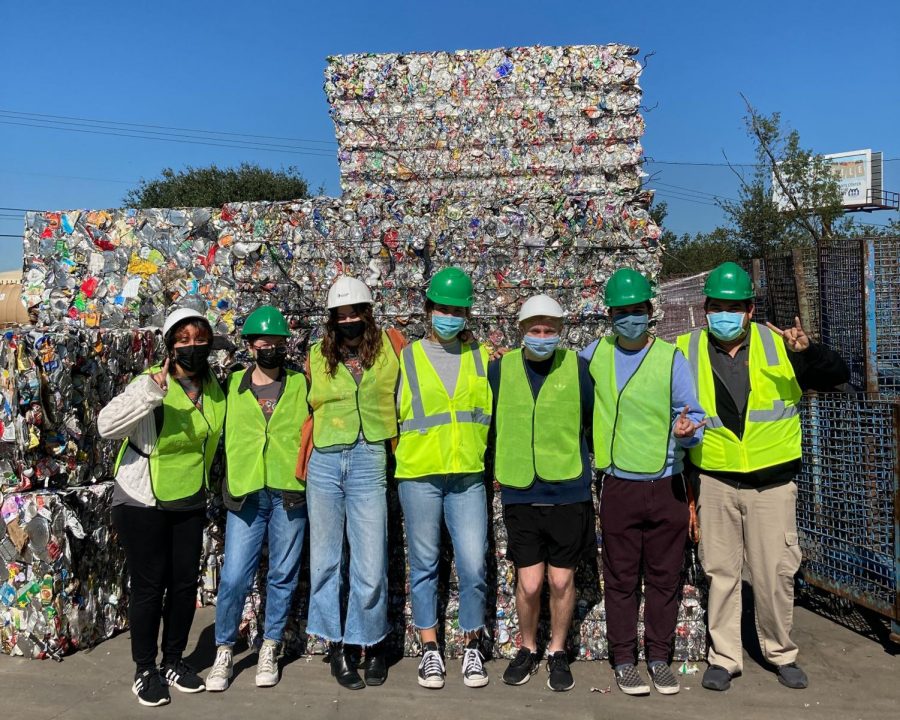UT students tackle reducing campus waste with zero waste program
November 30, 2021
Standing before a hazed rainbow of life-sized cubes, Mia Etem examines a range of recycled materials waiting to be purchased.
Through the UT Zero Waste program, Etem and her peers witness the impact of recycling in action while working with Balcones Resources, an independent recycling facility.
“When I recycle on campus, I always think about where it ends up,” the interpersonal communication junior said. “Having the opportunity to see the process first-hand at Balcones Resources really opened my eyes to the impact we have when we choose to recycle.”
A department of UT Resource Recovery, Zero Waste implements programs across campus to reduce trash in landfills. Zero Waste faculty encourages students to communicate with the University-affiliated recycling vendor and hosts lectures and service projects to promote the importance of recycling. By 2030, the program aims to reduce on-campus waste by a minimum of 90%.
Victoria Acevedo, Balcones’ education and research outreach coordinator, said UT sends anywhere between 70 to 90 tons of recycling per month to the facility. UT’s transportation service hauls recyclables from campus to Balcones and sends the materials to a single-stream sorting station. Once separated by material, Balcones’ technology squishes the recyclables into cubes which customers can then purchase.
On Nov. 9, seven Zero Waste interns visited the affiliated site eight miles northeast of campus.
“Enhancing students’ understanding of the (recycling) process is crucial to our efforts here at Balcones,” Acevedo said. “We can only divert as much as we can when we have their help.”
As of 2020, 62% of waste ends up in local landfills, and Balcones uses 12% of campus materials. Senior waste coordinator Lindsey Hutchison also said the program undergoes a network of communication between UT facilities to reduce landfill waste.
Hutchison emphasized the importance of waste audits which allow the program to monitor what materials are discarded across campus.
“Waste audits are (key) to really understanding those materials coming off campus and the programs that are needed to help address what we are seeing,” Hutchison said.
Emily Rios, a sustainable studies and Middle Eastern languages and cultures senior, said she works on the Zero Waste HERO training modules set to launch spring 2022.
“The goal is to make zero waste a more digestible concept for students,” Rios said. “Ten informative modules will range from learning about recycling and composting to systematic issues like consumption and social equity. It’s really a holistic way of approaching and learning about zero waste.”
As Zero Waste looks toward more ways to reduce waste on campus, Hutchison said the program hopes to combine hands-on and educational initiatives.
“Instead of giving people a list of things to memorize, our program offers students a deeper understanding of the recycling process,” Hutchison said . “That is how we are truly enacting change on our campus.”



